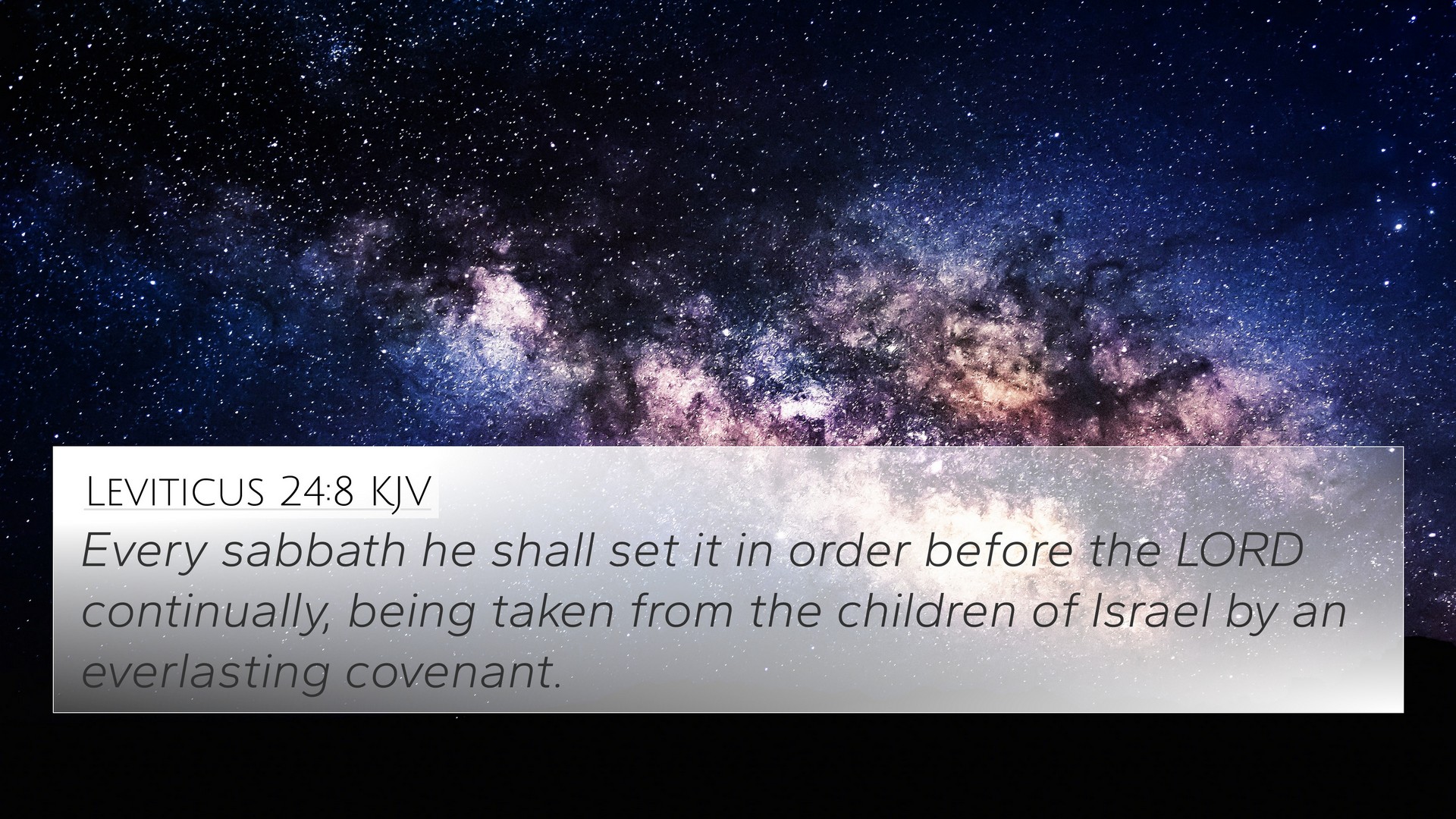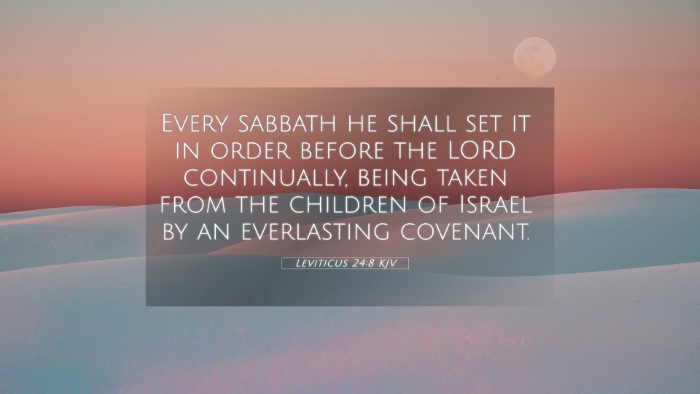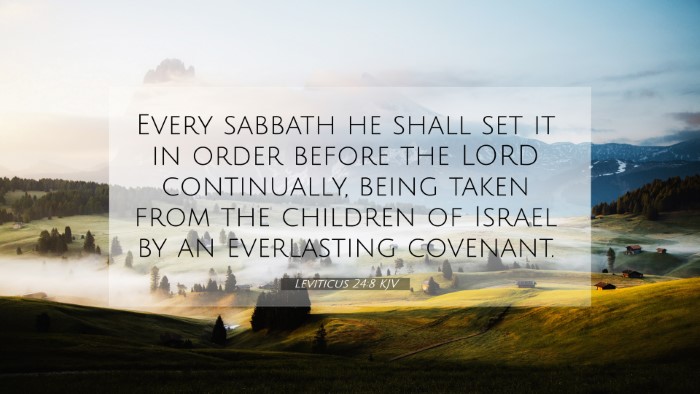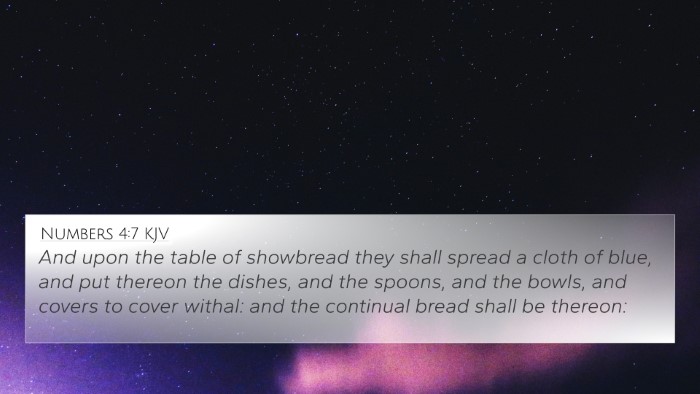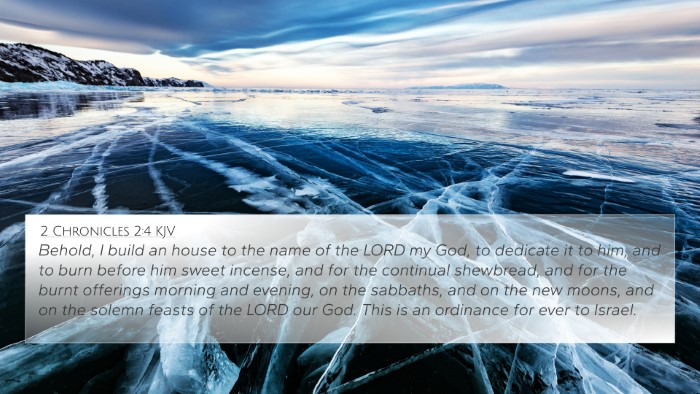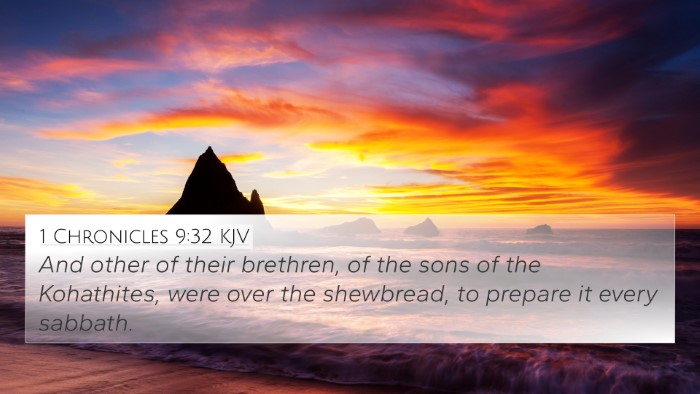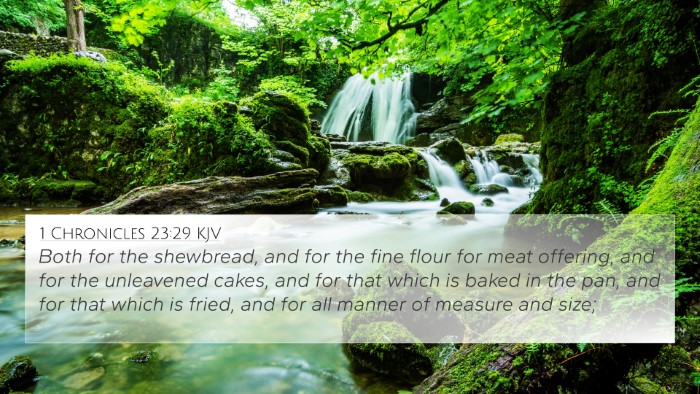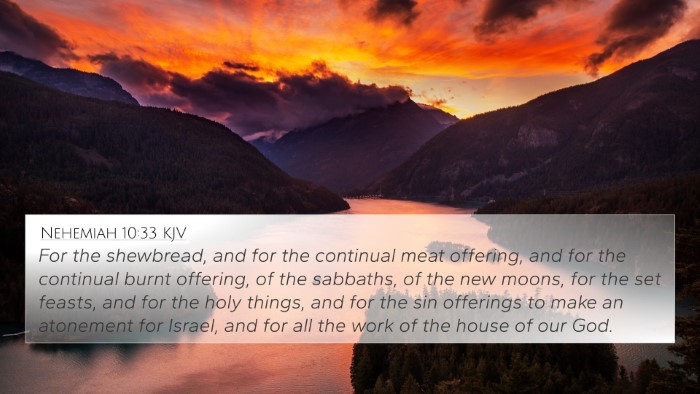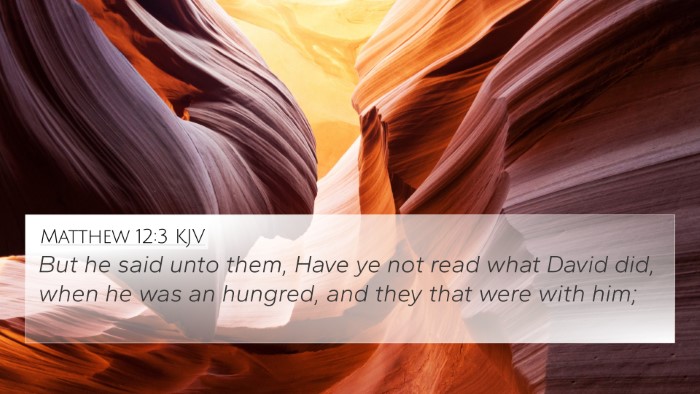Understanding Leviticus 24:8
Leviticus 24:8 states: "Every Sabbath he shall set it in order before the Lord continually, being taken from the children of Israel by an everlasting covenant." This verse has significant implications in the context of the religious practices of the Israelites, particularly regarding the showbread and the covenant that God maintains with His people.
Meaning and Interpretation
The interpretation of Leviticus 24:8 reveals several layers of meaning concerning the permanence of God's covenant and the responsibility of the priests. Let's explore these insights through the lenses provided by various public domain commentators.
1. Matthew Henry's Commentary
Matthew Henry emphasizes the importance of the showbread as a representation of God's provision for His people. He notes that the weekly renewal of the bread signifies the continual presence of God with His people. The act of setting the bread "in order" demonstrates the meticulous care that the priests had to observe, reflecting the holiness required in approaching God.
2. Albert Barnes' Notes
Albert Barnes discusses the perpetual nature of the covenant mentioned in this verse. He highlights that this "everlasting covenant" signifies the ongoing relationship between God and Israel, one that requires obedience and service from the people. He also points out that the showbread serves a dual purpose: it is both a form of sustenance and a symbol of the special communion between God and His chosen people.
3. Adam Clarke's Commentary
Adam Clarke provides an analysis on the significance of the priests' role in the preparation of the showbread. He delves into the rituals associated with it and explains that the act of showcasing the bread each Sabbath symbolizes the dedication of the community to God. Clarke also highlights that this practice connects deeply with themes of gratitude and acknowledgment of God’s blessings across generations.
Cross References and Connections
Leviticus 24:8 can be examined through several cross-referenced Bible verses that provide further insight and thematic connections. Here are some notable references:
- Exodus 25:30 - Discusses the showbread as a continual offering before the Lord.
- Leviticus 24:5-6 - Details the preparation of the showbread, emphasizing its dedicated role.
- Matthew 12:3-4 - Jesus references David eating the showbread, connecting the old covenant with His ministry.
- John 6:35 - Jesus identifies Himself as the bread of life, linking physical sustenance to spiritual nourishment.
- Hebrews 9:2 - Identifies the holy place where showbread is placed, emphasizing its sacredness.
- Psalm 105:5 - Reflects on the covenant relationship, which interweaves God's faithfulness with Israel's history.
- Revelation 2:17 - Alludes to the hidden manna, symbolizing eternal sustenance for believers.
- Hebrews 13:10 - Mentions the altar, linking the themes of sacrifices and offerings in the new covenant.
- 1 Peter 2:9 - The priesthood of believers connects with the ancient covenant practices.
- Romans 11:16 - Discusses the root and branches, showing the continuity of God's promises.
Thematic Connections
Understanding Leviticus 24:8 involves recognizing its thematic implications, especially regarding the enduring covenantal relationship between God and His people. The act of renewing the showbread each week embodies themes such as:
- Divine provision and sustenance
- The holiness of worship and service
- Continual remembrance of God's blessings
- The intergenerational covenantal commitments
- The transition from old covenant practices to new covenant realities
Conclusion
Leviticus 24:8 serves as a profound illustration of the relationship between God and Israel, encompassing enduring themes of sustenance, service, and covenant. Through the insights from Matthew Henry, Albert Barnes, and Adam Clarke, we gain a fuller understanding of its meaning and implications. The verses that cross-reference with Leviticus 24:8 provide deeper layers of understanding that enrich our comprehension of Biblical themes and reveal spectacular connections throughout scripture.
Exploring the linking Bible scriptures and comparative Bible verse analysis surrounding this verse will enhance your journey in Bible cross-reference study and provide valuable insights into the rich tapestry of Biblical narrative.
